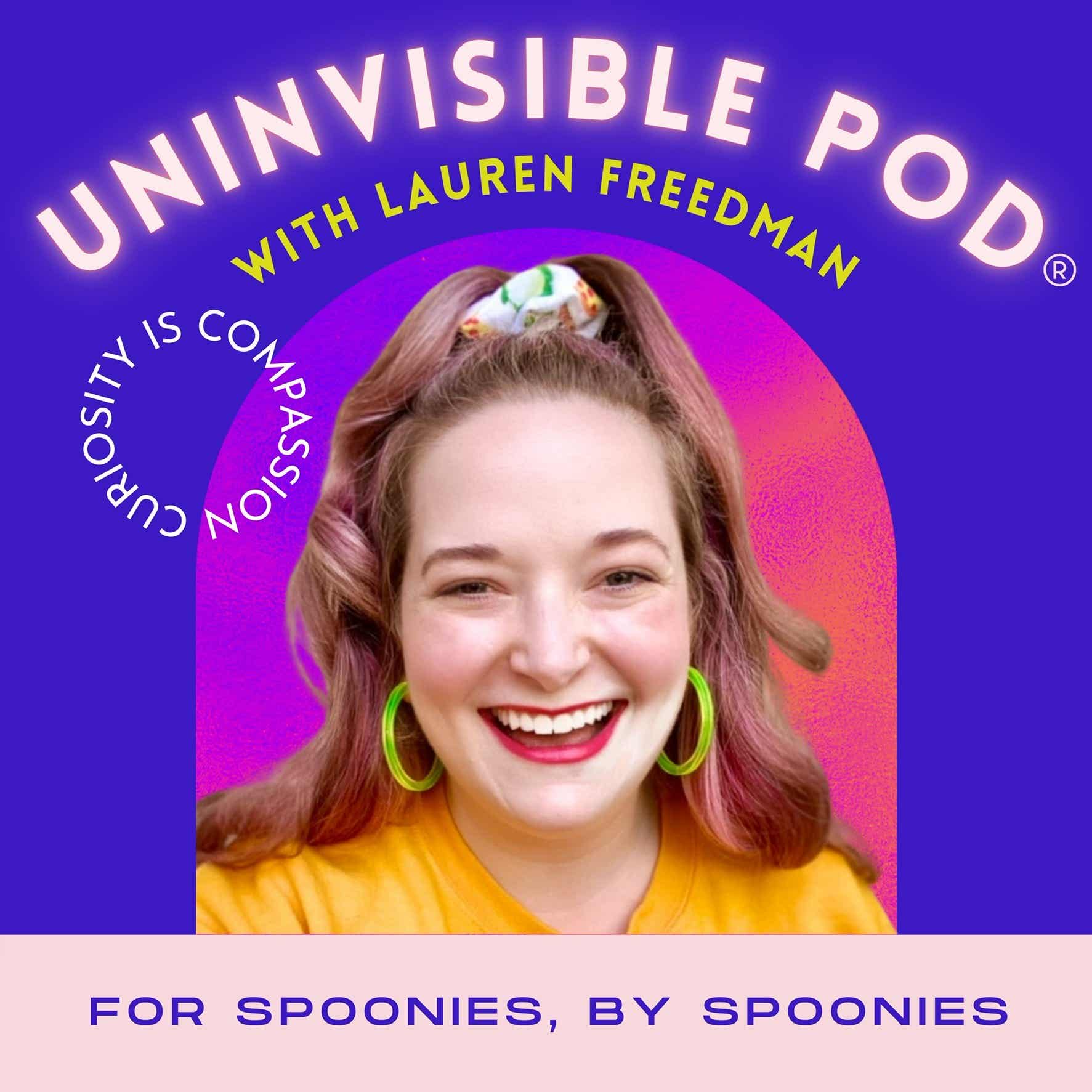
014: Depression, Anxiety, and Bipolar Disorder with Podcaster and Performer Paige Fockler

Uninvisible Pod with Lauren Freedman
Shownotes Transcript
Paige Fockler is a performer and podcaster who lives with depression, anxiety, and bipolar disorder. She is the host of Greetings From Depression, a podcast in which she interviews individuals who live with mental illness, and aims to create an environment in which discussions about mental health are acceptable, productive, and completely de-stigmatized. In this episode, she talks about her personal struggles, distinguishes between bipolar I and II, and tells us what being an “oversharer” means to her; the fear of not being believed by health professionals, shame, and making it OK.
**Join us as Paige shares… **
when she first noticed she was experiencing manic episodes
how her family (and her mom, in particular) is her main support system
that the boundaries of her relationship with her empathetic health advocate (her mom) can be blurry; as such, she doesn’t always share everything with her
that she wasn’t diagnosed with bipolar II until she was in her 30s; but she was diagnosed with general depression in her late teen years
the relief that comes along with diagnosis
that she has to be physical to cope with her symptoms in order to avoid her condition manifesting in anxiety
the generational role the Internet has played in her diagnosis and treatment, particularly in the way it has enabled her to do research on her condition
that her anxiety in healthcare stems from a fear that practitioners will not believe her
the stigma associated with conversations about mental health
the role gender – and gender roles – plays in her emotional experiences, and the lack of shame she’s always felt about sharing
the accommodations she’s made for herself in professional environments
the greatest bugbear of mental illness: when people’s reactions are to feel “sorry” for her or to judge
why she’s an “oversharer” – because she doesn’t want to be alone
that she needs structure to cope with symptoms
the importance of empathy
that she had to learn the difference between “sharing” and “oversharing”
how comedy is a natural outlet for her
why she doesn’t have a definitive opinion of suicide
how journaling has helped her
that her superpower is being empathetic and being able to tell if someone is depressed – almost instantly
that it’s important we understand how others cope, and support them – and that we remove stigma and normalize these support behaviors
support apps she recommends: MoodNotes, TalkSpace, and Stigma
how she manages shopping addiction, and when she realized it was a trigger for manic episodes This is a public episode. If you would like to discuss this with other subscribers or get access to bonus episodes, visit uninvisiblepod.substack.com)